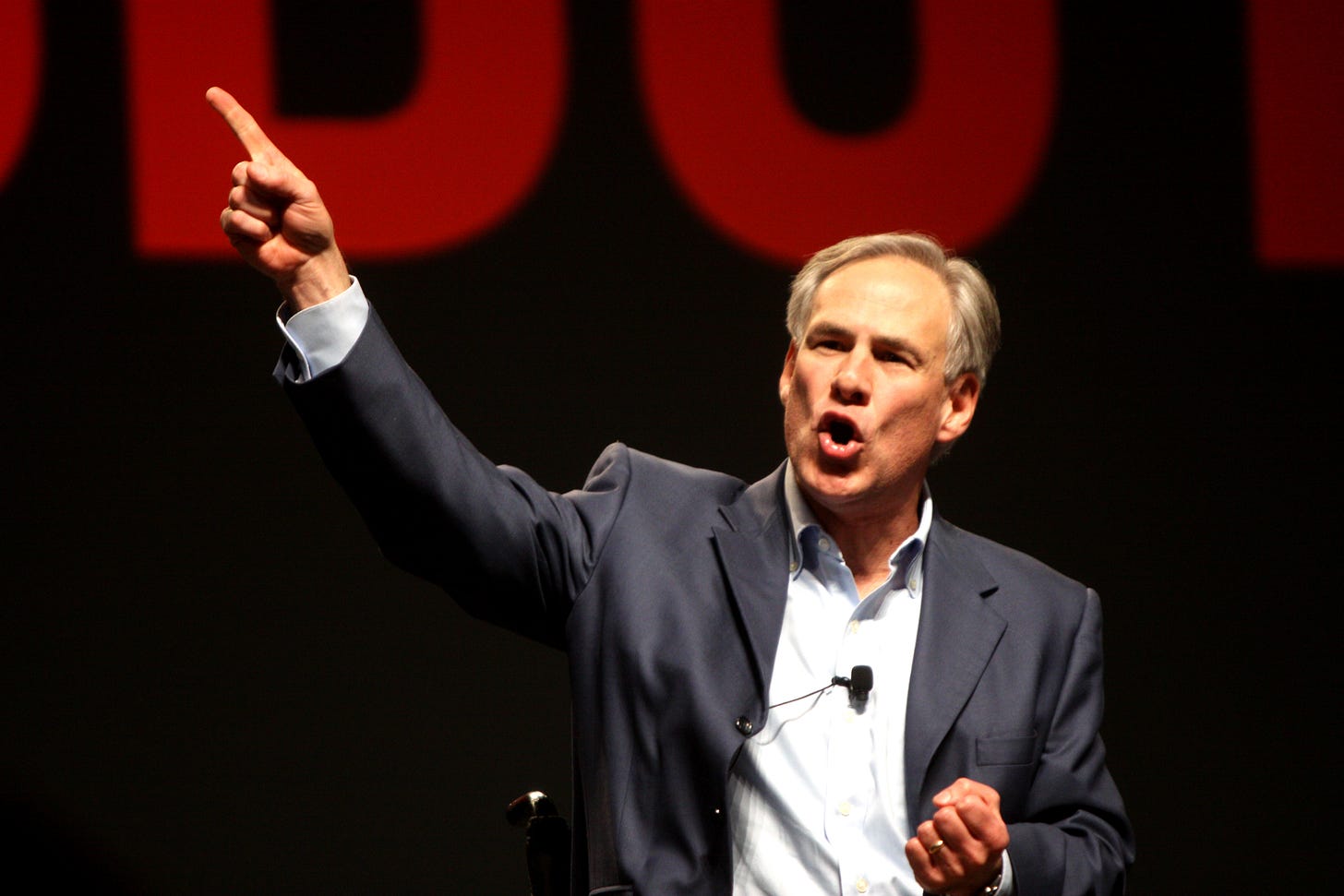Texas Governor Greg Abbott announced a renewed crackdown on what he described as attempts to impose Islamic Sharia law in the state, following a viral video showing a Houston imam pressuring Muslim-owned businesses to stop selling alcohol, pork, and lottery tickets or face boycotts and public demonstrations.
The Republican governor posted on the social media platform X on September 8, declaring that he has "signed laws that BAN Sharia Law and Sharia Compounds in Texas" and urged residents to report any attempts to impose "Sharia compliance" to local law enforcement or the Texas Department of Public Safety. Abbott's announcement comes amid escalating tensions over religious freedom and property rights involving a controversial Muslim residential development near Dallas.
Viral Video Sparks Statewide Response
The controversy erupted after videos circulated online showing Imam F. Qasim ibn Ali Khan of Masjid At-Tawhid in Houston confronting Muslim-owned businesses about selling products forbidden under Islamic law. Khan, affiliated with a Nation of Islam background before embracing mainstream Sunni Islam, warned shopkeepers they had 30 days to comply or face public demonstrations.
"This is the beginning of the campaign. We're serving notice to America and the world that enough is enough."
Khan declared in the viral footage that garnered over 4 million views by Monday morning, according to Yahoo News reporting.
The imam's campaign involves visiting Muslim-owned stores and demanding they remove what he considers "haram" (forbidden) items from their inventory, including alcohol, pork products, and gambling materials. His mosque flies a Palestinian flag and employs private security personnel in uniforms resembling local police, according to investigative reporting by the RAIR Foundation.
Legal Framework Already in Place
Abbott's response draws on existing Texas legislation rather than new bans. In 2017, Texas passed House Bill 45, also known as the "American Laws for American Courts" Act, which prohibits Texas courts from applying foreign laws in family law cases if they conflict with constitutional rights. The 2017 law does not explicitly mention Sharia but addresses any foreign legal system that conflicts with constitutional protections.
Legal experts note that no U.S. courts have ever applied criminal aspects of Islamic law, as doing so would violate the Constitution's Supremacy Clause. Texas does not have a formal "Sharia ban," but the 2017 bill prevents courts from applying any foreign or religious code, including Sharia, if it conflicts with U.S. law.
EPIC City Investigation Continues
Abbott's statement coincides with ongoing state investigations into the East Plano Islamic Center's proposed EPIC City development near Dallas. The governor announced in March 2025 that multiple state agencies were investigating the planned 1,000-home Muslim-majority community for potential violations of securities, housing, and environmental laws.
The federal Department of Justice recently closed its investigation into EPIC City, finding no violations of federal law. However, state-level probes continue under Attorney General Ken Paxton's office, focusing on the development's unique business structure that requires residents to purchase shares in a corporate entity rather than direct property ownership.
"This law prevents them from creating no-go zones. It prevents them from selling or renting land only to people who follow Islam."
Abbott declared at a ceremonial bill signing for House Bill 4211 in McKinney, explicitly targeting the EPIC development.
Political Backlash and Constitutional Concerns
The controversy has drawn criticism from civil rights organizations and legal scholars who view Abbott's rhetoric as discriminatory. The Council on American-Islamic Relations (CAIR) criticized Abbott's social media posts as "fearmongering about Islam". It urged the governor to visit Texas mosques to gain a better understanding of Islamic principles.
"Governor Abbott should visit one of the many mosques across Texas to learn about what Sharia really is. In the meantime, he should know that the Texas Muslim community fears God, not dishonest fearmongering from politicians who understand Islam about as well as they understand the First Amendment."
CAIR emphasized that Sharia provides Muslims with moral guidance in matters of worship, charity, and business ethics, but "is not a criminal code and poses no threat to American law".
Senator Ted Cruz joined the criticism of the Houston imam's campaign, posting on X that "Sharia law has no force in America. This religious harassment is outrageous, and it likely violates multiple federal & state laws".
Timing Draws Additional Scrutiny
Critics have accused Abbott of political grandstanding, particularly as the controversy erupted just days before the 24th anniversary of the September 11 attacks. A Texas conservative organization, the True Texas Project, circulated an anti-Muslim email to supporters on September 9, disparaging Middle Eastern elected officials and invoking the terrorist attacks.
The email described having "multiple elected positions filled by Middle Easterners" as "foolish" and acknowledged that critics would likely label the comments as bigoted. Democratic state Representative Salman Bhojani of Euless called the messaging "really insulting" and stated that "this is not what Texas stands for, this is not what America stands for".
House Bill 4211 Targets Religious Developments
Abbott ceremonially signed House Bill 4211 on September 12 in McKinney, legislation that removes certain religious exemptions from the Texas Fair Housing Act and prohibits religious organizations that own more than 25 acres from restricting home sales solely to members of their faith. The law also requires business entities entering residential arrangements to disclose investment structures to potential buyers.
State Representative Candy Noble of Murphy, who authored the bill, cited quotes from Community Capital Partners highlighting what she called the development's unlawfulness: investments in EPIC City are non-refundable, shares cannot be easily sold, and sales will be limited only to those the company believes "will contribute to the overall makeup of the community".
The controversy surrounding both the Houston imam's campaign and the EPIC City development reflects broader national tensions about religious accommodation, property rights, and the boundaries of constitutional protection in an increasingly polarized political environment. As investigations into EPIC City continue and the Houston imam's campaign potentially expands, the situation highlights how local religious disputes can escalate into statewide political flashpoints, particularly when they intersect with existing concerns about immigration and religious diversity.



